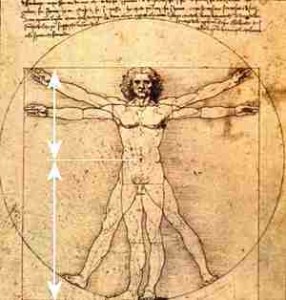This morning I had an epiphany. I realized that, in more than one way, I was guilty of doing the very thing that I’ve had on my mind to write about, namely, I’ve been allowing my desire for perfection to keep me from action. So, rather than waiting for everything to be crystalized in my mind before I put fingers to keyboard, I’m finally writing this post.
One of the things I allowed myself to splurge on before Andreas was born was an especially beautiful baby book. I find most baby books out there to be too much somehow, but this one suits me. It has a blue toile cloth cover and elegant pages inside that are ring bound. One of the pages is dedicated to the baby’s name – to write down how you chose the name, what significance it has, and what other names you considered.
Over the past few months, I’ve slowly been filling out all the pages of the book as much as I can to this point in Andreas’ life. But the name page got me. I kept avoiding it because I just couldn’t figure out a way to distill the meaning (in my mind) of his name down to just a couple sentences or descriptive words.
 Why the complexity? It seems straight forward enough. Andreas is essentially Greek for “male human being” as far as I’ve been able to gather. Therefore, it also has the connotation of “strong” and “manly.”
Why the complexity? It seems straight forward enough. Andreas is essentially Greek for “male human being” as far as I’ve been able to gather. Therefore, it also has the connotation of “strong” and “manly.”
My hang-up is with “human being” part. Many names have impossible-to-miss elevated meanings like “Messenger of God” or “Beloved” or “Angelic” (ahem, ahem) or “Gift from God.”
Most often, when “human” is used in a sentence, it is modified by words like, “just”, “only,” and “merely.” The sentence usually is about flaws and limits. But I have come to prefer a meaning of being “human” as something very different from this. I believe that to be truly and fully human is to be inspired to live a rich, vibrant, overflowing life. Not a flawless life, but a committed, expressive, and generous human life. To me, that is the ultimate meaning of “human being.”
One of the traits that many musicians share is that of perfectionism. We often have a taste for the perfect, the divine, the sublime (choose your superlative!) – so much so that we’re willing to hone our skills for years in search of it. I think there is a time and place for striving for perfection, and our drive for experiencing the sublime certainly can fuel our endeavors. However, there comes a point when the goal of being perfect, to not make a mistake or wrong move, to be completely blameless at all times, becomes detrimental to our becoming “human” – in my definition of being human.
I was listening to one of Krista Tippet’s recent radio broadcasts of her show On Being. In this episode she interviewed the poet Christian Wiman who talked about how, as he was facing death, he didn’t want poems that gave him the perfect, the divine, or the ineffable. Rather, he wanted to read poems that gave him more of life here on earth, that life that was slipping away. He wanted poems that made reality more real. (I’m paraphrasing…).
Onstage is a place where the goal of being perfect has the effect of binding us up rather than giving us the freedom we need to perform. I don’t advocate being haphazard or reckless. I’m only suggesting that instead of the aim being perfection, one can aim for something less than (but perhaps better than!) perfection. Like excellence or expression or communication.
The desire to be perfect also can bind us up offstage as we make decisions in our lives. Who of us, at some point or another, has not faced a decision that makes us feel frozen from the fear of making the wrong choice? It is one thing to be thoughtful and thorough in taking our time to understand a situation from many perspectives before we act. It is quite another to not be able to continue with our lives because we are so scared of being wrong. There comes a time when, if we can abandon the “should’s” and strive to be fully human rather than divine, we can boldly place one foot in front of the other. We can commit with all our hearts knowing that the price to pay for being frozen and stuck is often much higher than the price to pay for not being perfect.
There. I said it – and quite imperfectly, I’m sure – but I hope some of you will understand what it is I mean to say. Oh, and by the way, the name page in Andreas’ baby book is now complete!

2 Responses to On Being Human